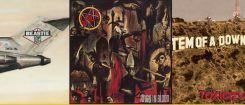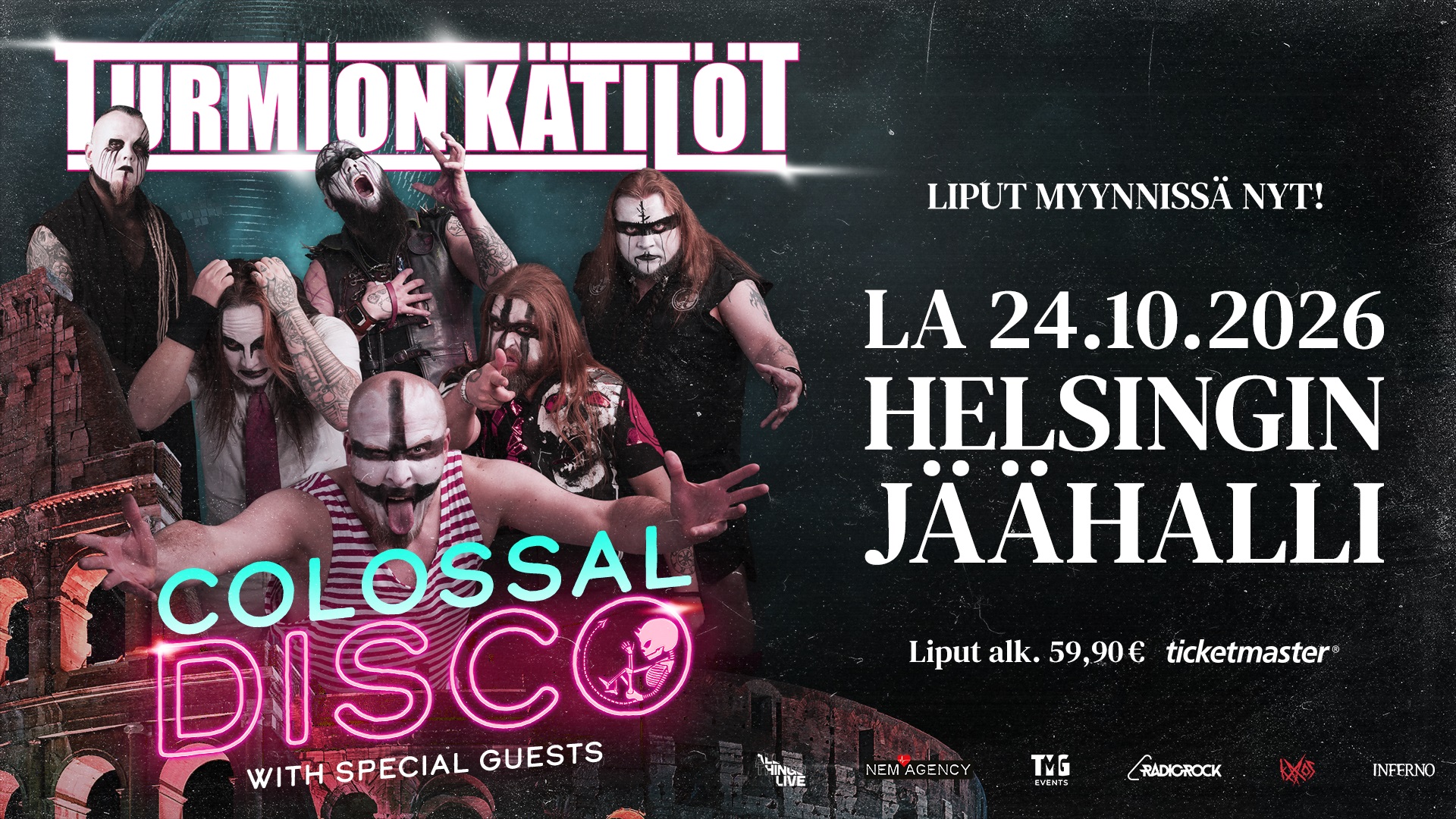Tuottajavelho Rick Rubin muistelee työskentelyään Slayerin, Metallican sekä System Of A Downin kanssa
 Legendaarinen yhdysvaltalainen tuottaja Rick Rubin on antanut hiljattain haastattelun RollingStone.com:lle, jossa muistelee työskentelyään mm. Slayerin, Metallican, Beastie Boysin sekä System Of A Downin legendaaristen kappaleiden parissa. Mies on kommentoinut kokemuksiaan edellämainittujen legendaaristen yhtyeiden kanssa seuraavasti:
Legendaarinen yhdysvaltalainen tuottaja Rick Rubin on antanut hiljattain haastattelun RollingStone.com:lle, jossa muistelee työskentelyään mm. Slayerin, Metallican, Beastie Boysin sekä System Of A Downin legendaaristen kappaleiden parissa. Mies on kommentoinut kokemuksiaan edellämainittujen legendaaristen yhtyeiden kanssa seuraavasti:
Beastie Boys – ”No Sleep Till Brooklyn”:
“The title came from Adam Yauch. He had a punk-rock, alternative band beyond the Beastie Boys, and “No Sleep Till Brooklyn” was a title that he had in that band. I thought it was a really good title and suggested that we use that for a Beastie Boys song.
Artikkeli jatkuu mainoksen jälkeenMainos päättyyAll four of us always wrote lyrics and then kind of pooled ideas, and we hung out a lot. We would go out to Danceteria pretty much every night and hang out and come up with lines to make each other laugh. Usually we’d only be working on one song at a time, so let’s say that song was the song of that month. So for that month, every time we’d go out, we write rhymes and collect them all. Then eventually, we’d put them all together and try to figure out the best order for it to happen in. I remember there were a lot of really funny lines in that one. It definitely entertained us at the time. Usually, the way it worked was I would make the tracks first, then the guys would come in and do vocals. So I played the guitar on it in the room by myself.
Kerry King from Slayer did the guitar solo. I don’t think he liked the song. I think he just thought it was bizarre. He’s a real, serious metalhead. He really loves metal, and I don’t think he listens to much music outside of metal. At least then he didn’t. I don’t think it spoke to his aesthetic. And honestly, in retrospect, I don’t think he really spoke to the Beasties‘ aesthetic. They didn’t really like him either [laughs]. It was kind of mutual.”
Slayer – ”Angel Of Death”:
“That was the first record I ever made in California. We recorded it at this little studio. It’s no longer there; it’s now a flower shop on Vine in Los Angeles.
The technical things about recording that song stand out to me now. They played so fast. If you listen to any of the really fast recordings before Slayer, they sounded like rock records. There are certain things you do to make a rock record. But because Slayer played so fast, those things that you would normally do didn’t work so well. If you listened to any other speed-metal, thrash-metal music that was being made at that time — and there wasn’t so much of it — it’s not clear. The reason is, technologically, people were recording it more like it was traditional rock music, which it really wasn’t. It was this new form. People didn’t look at it as its own thing that had to be handled differently. So that was my mission: How do you get across the clarity and articulation and speed and energy?
Dave Lombardo is this incredible, unbelievably great drummer. One thing that we did was make the drums louder. The nature of distorted electric guitars is that they sound loud regardless of how loud they are. Whereas drums, because it’s a natural instrument, depending on how loud they are in the mix really changes that feeling of how hard they’re being hit. If you’re in a room with the drums and somebody’s hitting them hard, they’re much louder. So, psychologically, by making the drums louder, it made everything seem louder.
I also did away with reverb. With their super-fast articulation in a big room, the whole thing just turns into a blur. So you don’t get that crystal clarity. So much of what Slayer was about was this precision machinery.
This was clearly a controversial song. Slayer were kind of the first death-metal or thrash band. I don’t know what the right title is. Metallica and they were going on at the same time, but Metallica were so different lyrically than them. Slayer were more blood and guts and Satan. Anyway, this was a song where the record company refused to put out the record. So we had to find a new distributor. It was the first record I did with Geffen Records instead of Columbia Records.”
System Of A Down – “Chop Suey!“:
“When I first saw System Of A Down, I loved them so much, it just made me laugh. There was no point of reference. It was so unusual. It’s hard music, but a lot of hard music sounds very similar. This is hard, but it’s playful, and it’s really danceable and funky. And the emotion of the performances, it really reaches me. I love it.
This song was originally going to be called “Self-Righteous Suicide,” and the record company rebelled. It was Columbia again, like with Slayer. I remember wanting to go to the mat and keep the title, and the band decided, “Let’s call it ‘Chop Suey!‘” which I thought was kind of funny.
It’s an unusual song because the verse is so frantic. The style is so broken up and unusual. It’s both difficult to sing and arguably difficult to listen to, but then the chorus is this big, soaring, emotional, surging, beautiful thing. And then it’s got this incredible bridge, “Father, father, father, do you commend my spirit?/Father, why have you forsaken me?” It’s just real heavy, biblical and grand. It’s so unusual that it goes between these crazy rhythmic explosive verses into this emotional, anthemic ending.
It’s just a very unusual song, and the fact that it became a hit is really unusual, because it’s such bizarre music. I was shocked when Serj [Tankian] first sang the verse to me. It’s like, “You really want this to be the verse?” And he’s like, “Yeah.” He loved it. And it holds up.
You have no perspective on something like this the first time you hear it. But the thing that’s so exciting about that band is how they take these unusual ideas and execute them on a high level. They can take something that seems really awkward and convey it in a way where you can see it as beautiful. It forces you to open your mind.”
Metallica – ”The Day That Never Comes”:
“They had made that movie, ”Some Kind of Monster”, which I thought was really bold of them to make, because it showed them lost. The main goal of our work together was to get them to re-embrace being Metallica, feeling OK to be a heavy metal band. In some ways, they had already done that, but before that, they had tried to reinvent themselves in different ways.
I tried to get them to re-engage with everything everybody fell in love with, with Metallica, in the first place. I got them to listen to the music that they were listening to at the time that they made Master of Puppets, those influences. I asked them to live with those influences and spend more time playing together as a band.
They’d fallen into a trap of using the studio more as an instrument and punching in parts to get the perfection they were looking for than they were getting through raw performance power. It was about getting them to not try ideas by editing them together with a machine, but to try playing them in different orders to see what they felt like. And they really ended up getting back to being a band.
Anytime Lars would want to sit at the computer and try and write, I would insist that he and the band would all play together [laughs]. Some of it was just a habit for them. It’s easy to try a lot of ideas if you don’t have to play them. But if you’re playing one part and it’s going to go into the next part, you might play the first part or the second part slightly differently, and the way that they bleed into each other or oppose each other can happen in a way that’s musical. You can hear that here. That doesn’t happen when you randomly click pieces together.
The other writing experiment I challenged them with was, “Imagine there was no such band as Metallica. Imagine you guys are in the band that you are in, this band, and you’re going to play in a Battle of the Bands. You want to blow people away. What does that sound like? Without the baggage of thinking it needs to be any certain thing, what is the thing that you feel like will tear the heads off of the audience?” It really worked out good. I love that whole Death Magnetic album.”


